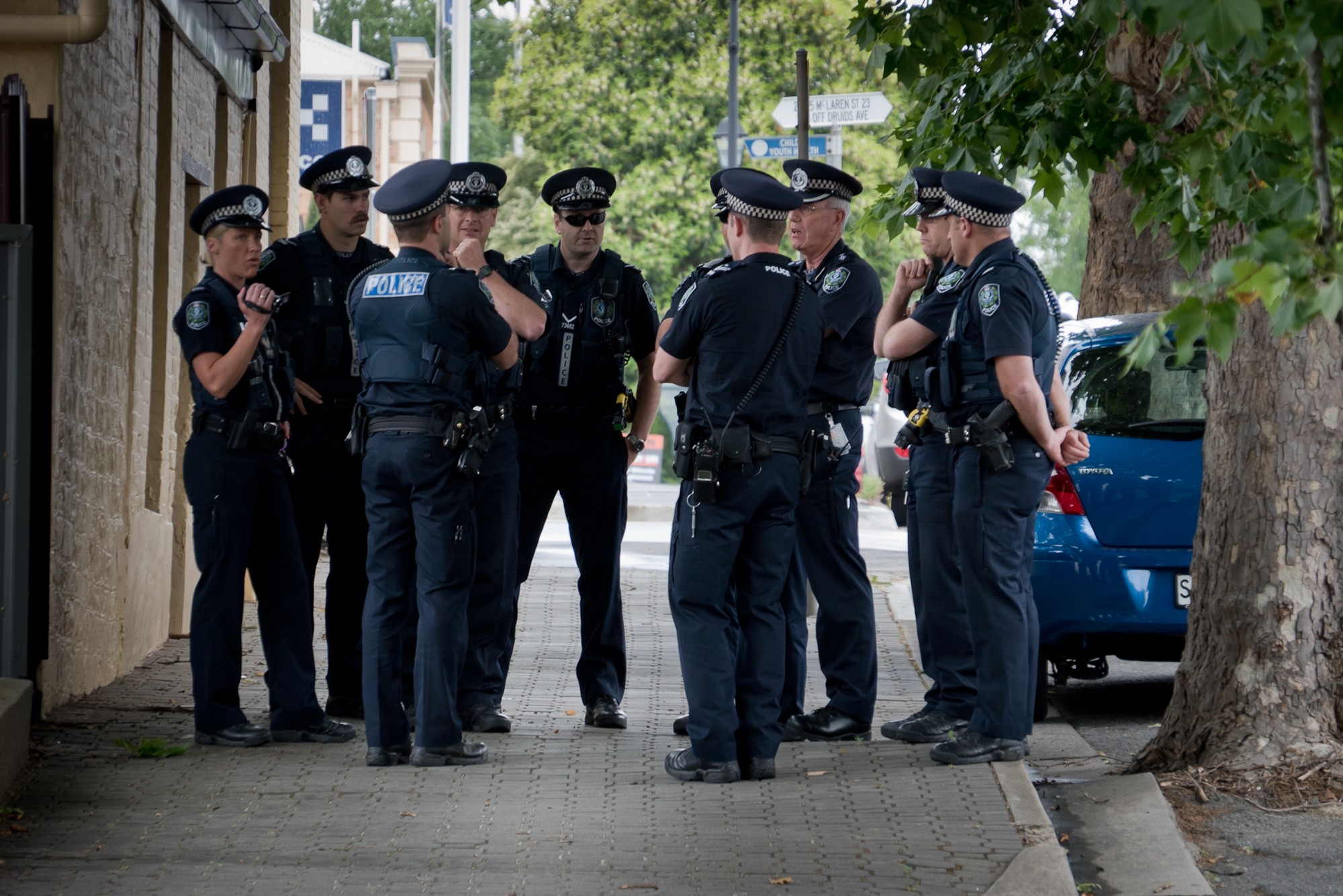Law Enforcement Officer: An Overview
Law enforcement officers are individuals who work to maintain public safety by enforcing the laws of a given community. These officers work at various levels of government, including federal, state, and local, and may be employed by a wide variety of agencies, including police departments, sheriffs’ offices, and the Federal Bureau of Investigation (FBI). They are responsible for protecting citizens and property, preventing and responding to criminal activity, and maintaining law and order in their respective jurisdictions.

The Role of Law Enforcement Officers
The primary role of law enforcement officers is to protect and serve the public. This includes enforcing laws, investigating crimes, and responding to emergencies. They are responsible for ensuring public safety by working to prevent crime and responding to incidents when they occur. Their duties can range from issuing traffic tickets to responding to major crimes and disasters.
Law enforcement officers also play a vital role in building relationships with the communities they serve. They may work closely with community organizations to address crime and safety concerns, and may participate in community events and initiatives to promote positive relationships with citizens. This can help to foster trust and support for law enforcement within the community, which can lead to more effective policing.
Training and Qualifications
To become a law enforcement officer, individuals must typically complete a rigorous training and qualification process. This process may vary depending on the agency and level of government, but typically involves a combination of academic coursework, physical training, and on-the-job training.
Academic coursework may include classes in criminal justice, law enforcement, and other related fields. Physical training may include endurance, strength, and agility training, as well as firearms training and self-defense techniques. On-the-job training typically involves working alongside experienced officers to learn the skills necessary for the job.
In addition to training, law enforcement officers must also meet certain qualifications, such as age and citizenship requirements, and must pass a background check and physical and psychological evaluations. Some agencies may also require a college degree or previous experience in law enforcement or a related field.
Physical Therapy: What It Is and How It Can Help You
Types of Law Enforcement Officers
There are many different types of law enforcement officers, each with their own specific duties and responsibilities. Some of the most common types of law enforcement officers include:
- Police Officers: Police officers are responsible for enforcing the law within a specific jurisdiction, such as a city or town. They may respond to emergency calls, investigate crimes, and make arrests.
- Sheriff’s Deputies: Sheriff’s deputies are responsible for maintaining law and order in a specific county or region. They may perform similar duties to police officers, but may also be responsible for serving court orders and transporting prisoners.
- State Troopers: State troopers are responsible for enforcing state laws on highways and other state-owned property. They may also assist local law enforcement agencies in investigations and emergencies.
- FBI Agents: FBI agents are responsible for investigating federal crimes, such as terrorism, cybercrime, and organized crime. They may work in a variety of specialized units, such as the Hostage Rescue Team or the Cyber Division.
Challenges Facing Law Enforcement Officers
While law enforcement officers play a vital role in maintaining public safety, they also face many challenges and risks in their work. Some of the biggest challenges facing law enforcement officers include:
- Physical Risk: Law enforcement officers face significant physical risks in their work, including the risk of injury or death from violent criminals.
- Emotional and Mental Health: The nature of law enforcement work can also take a toll on officers’ emotional and mental health. They may be exposed to traumatic incidents, have to make split-second life or death decisions, and may work long hours and irregular schedules.
- Public Perception: Law enforcement officers are often subject to public scrutiny and criticism, which can affect their morale and job performance.
- Technology: The rapid pace of technological advancements also poses challenges for law enforcement officers, as criminals may use technology to commit crimes, making it difficult for officers to keep up with new methods and techniques.
- Political Climate: The political climate can also pose challenges for law enforcement officers, as changes in leadership and policies may impact their ability to do their jobs effectively.
The Importance of Diversity in Law Enforcement
In recent years, there has been a growing recognition of the importance of diversity in law enforcement. A diverse police force can better reflect the community it serves and may be better equipped to address the unique needs and concerns of different communities.
Diversity in law enforcement can also help to build trust and positive relationships between law enforcement officers and the communities they serve. This can lead to more effective policing and better outcomes for both law enforcement and the community.
However, achieving diversity in law enforcement can be a challenge. Many law enforcement agencies struggle with recruitment and retention of diverse candidates, and may face cultural and structural barriers to creating a more diverse and inclusive workplace.
Efforts to increase diversity in law enforcement may include targeted recruitment efforts, cultural competency training for officers, and initiatives to improve community relationships and engagement.
Conclusion
Law enforcement officers play a vital role in maintaining public safety and enforcing the laws of their respective communities. They face significant challenges and risks in their work, including physical danger, emotional and mental stress, and public scrutiny.
However, law enforcement officers also have the opportunity to make a positive impact on their communities, by building trust and positive relationships with citizens, preventing and responding to crime, and promoting a culture of safety and respect.
Efforts to increase diversity and promote inclusion in law enforcement can help to improve outcomes for both law enforcement and the communities they serve. By working together, law enforcement and community members can create a safer and more just society for all.
Tips for Interacting with Law Enforcement Officers
Interactions with law enforcement officers can be intimidating, especially if you are not familiar with the legal system. However, there are some simple tips that can help to ensure a smooth and respectful interaction with law enforcement officers:
- Be polite and respectful: Law enforcement officers are trained to maintain control of situations and ensure the safety of everyone involved. Being polite and respectful can help to de-escalate any tensions and make the interaction more productive.
- Follow instructions: If a law enforcement officer asks you to do something, such as providing identification or stepping out of your car, it is important to comply. Failure to do so can lead to more serious legal consequences.
- Know your rights: It is important to be familiar with your legal rights when interacting with law enforcement officers. For example, you have the right to remain silent and the right to an attorney. If you are unsure of your rights, it may be helpful to consult with a legal expert.
- Keep your hands visible: Law enforcement officers may be wary of individuals who keep their hands hidden or out of sight. Keeping your hands visible can help to reassure officers that you are not a threat.
- Stay calm: Interactions with law enforcement officers can be stressful, but it is important to remain calm and avoid getting defensive or confrontational. This can help to keep the situation under control and prevent any unnecessary escalation.
In conclusion, law enforcement officers play a crucial role in maintaining public safety and enforcing the laws of their communities. They face many challenges and risks in their work, but their efforts are essential for creating a safer and more just society. By understanding the role of law enforcement officers and following some simple tips for interacting with them, we can help to ensure that our communities are safe and secure for everyone.
| Topic | Key Points |
|---|---|
| Role of Law Enforcement | Enforce laws, maintain public safety, respond to emergencies, investigate crimes, and build positive relationships with communities |
| Types of Law Enforcement | Local police, state police, federal agencies, and specialized units such as SWAT, K9, and cybercrime |
| Challenges | Physical danger, emotional and mental stress, public scrutiny, technological advancements, and political climate |
| Importance of Diversity | A diverse police force can better reflect the community it serves, build trust, and address the unique needs of different communities |
| Tips for Interactions | Be polite and respectful, follow instructions, know your rights, keep your hands visible, and stay calm |
FAQs
[sc_fs_multi_faq headline-0=”h4″ question-0=”What is the role of law enforcement officers in society?” answer-0=”Law enforcement officers are responsible for enforcing laws, maintaining public safety, responding to emergencies, investigating crimes, and building positive relationships with the communities they serve.” image-0=”” headline-1=”h4″ question-1=”What are some of the challenges that law enforcement officers face?” answer-1=”Law enforcement officers face physical danger, emotional and mental stress, public scrutiny, technological advancements, and the political climate of their communities.” image-1=”” headline-2=”h4″ question-2=”What are some of the different types of law enforcement agencies?” answer-2=”There are many types of law enforcement agencies, including local police departments, state police, federal agencies such as the FBI and DEA, and specialized units such as SWAT, K9, and cybercrime units.” image-2=”” headline-3=”h4″ question-3=”Why is diversity important in law enforcement?” answer-3=”A diverse police force can better reflect the community it serves, build trust, and address the unique needs of different communities. This can lead to more effective and equitable law enforcement practices.” image-3=”” headline-4=”h4″ question-4=”How can individuals interact with law enforcement officers in a respectful and productive way?” answer-4=”Individuals can be polite and respectful, follow instructions, know their rights, keep their hands visible, and stay calm when interacting with law enforcement officers. These actions can help to de-escalate tense situations and ensure a positive outcome.” image-4=”” count=”5″ html=”true” css_class=””]




